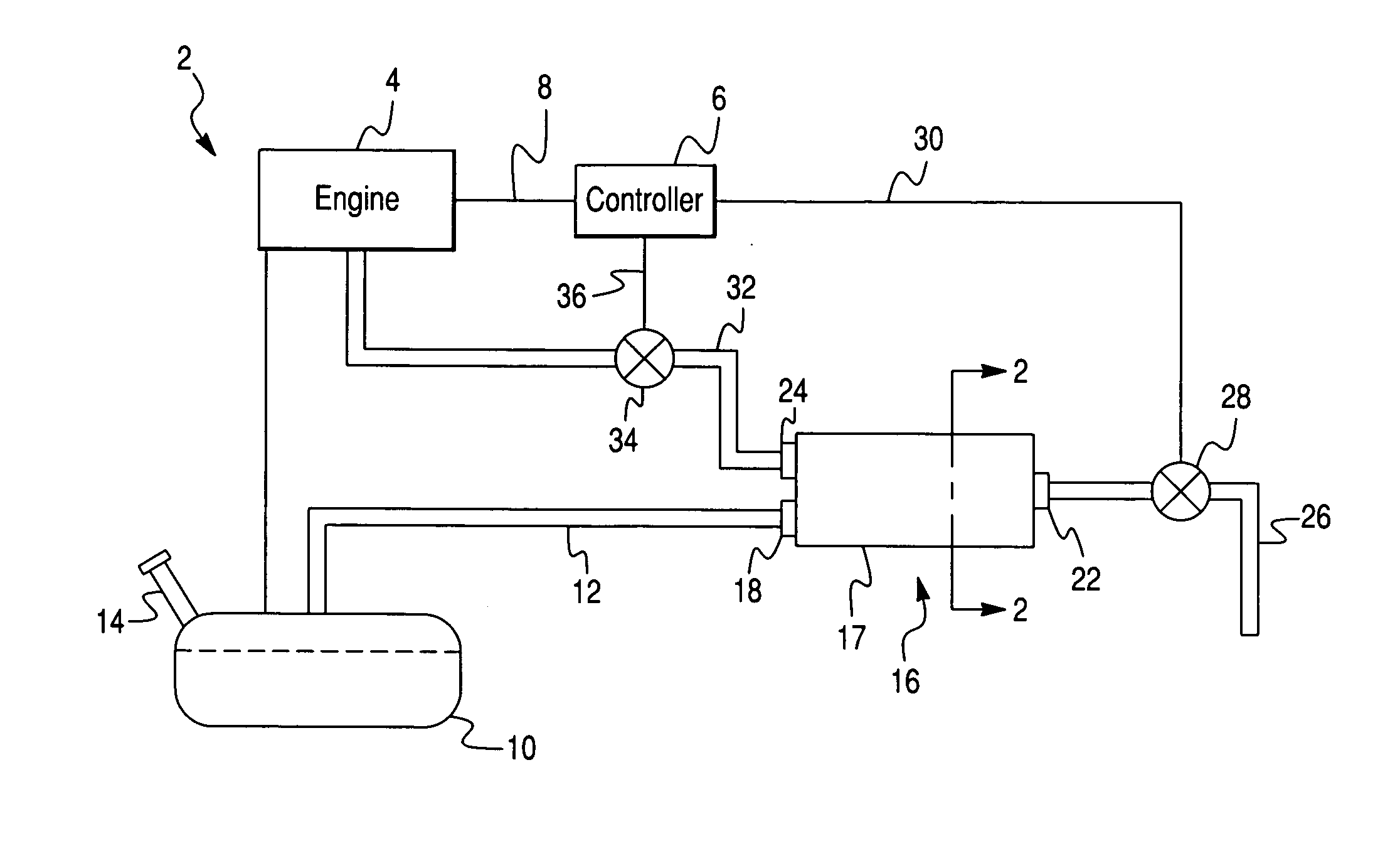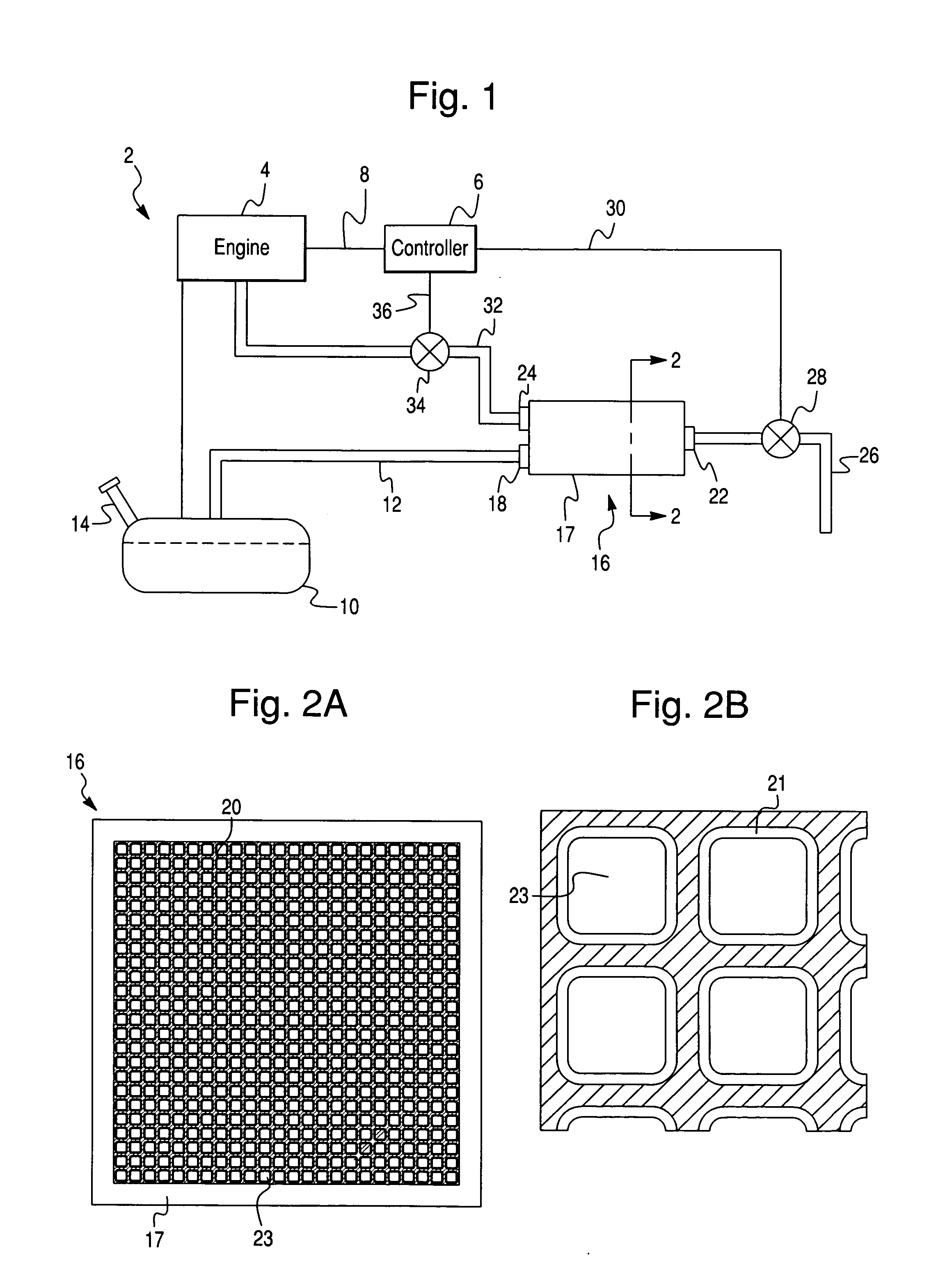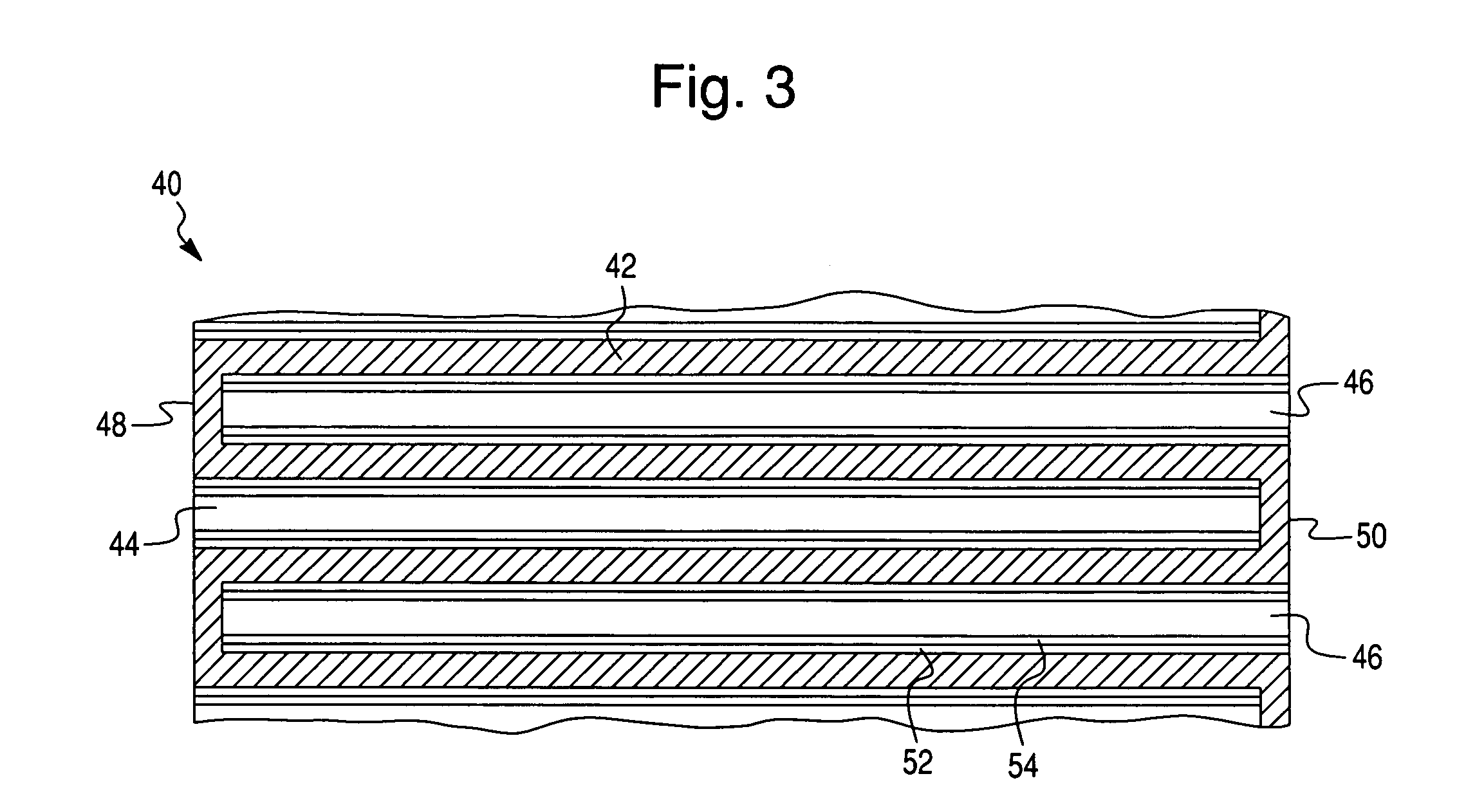Hydrocarbon adsorpotion method and device for controlling evaporative emissions from the fuel storage system of motor vehicles
a technology of hydrocarbon adsorption and fuel storage system, which is applied in the direction of filtration separation, separation process, application, etc., can solve the problems of reducing adsorption capacity, reducing a significant environmental impact, so as to reduce the amount of fuel vapor released into the atmosphere, reduce the amount of fuel vapor, and reduce the effect of evaporative hydrocarbon emissions
- Summary
- Abstract
- Description
- Claims
- Application Information
AI Technical Summary
Benefits of technology
Problems solved by technology
Method used
Image
Examples
Embodiment Construction
[0032] The evaporative emission control apparatus of the present invention comprises a fuel storage system, e.g., a fuel tank, an evaporative vapor vent line, a canister containing a hydrocarbon adsorbent, and a clean air vent line to the atmosphere. In one embodiment, the canister is filled with hydrocarbon adsorbent particles. In another embodiment, the hydrocarbon adsorbent material is formulated into a slurry that is coated onto a support substrate, e.g., a flow through monolithic support, that is placed within the evaporative emission treatment canister.
[0033] Referring now to FIGS. 1 and 2, an evaporative emission control system 2 for a vehicle including an engine 4 is illustrated and represents one non-limiting embodiment of the present invention. The evaporative emission control system 2 of this embodiment comprises a fuel tank 10, an evaporative vapor vent line 12, a canister 16 containing a hydrocarbon adsorbent material 21, and a clean air vent line 26 to the atmosphere....
PUM
| Property | Measurement | Unit |
|---|---|---|
| temperatures | aaaaa | aaaaa |
| pore size | aaaaa | aaaaa |
| diameter | aaaaa | aaaaa |
Abstract
Description
Claims
Application Information
 Login to View More
Login to View More - R&D
- Intellectual Property
- Life Sciences
- Materials
- Tech Scout
- Unparalleled Data Quality
- Higher Quality Content
- 60% Fewer Hallucinations
Browse by: Latest US Patents, China's latest patents, Technical Efficacy Thesaurus, Application Domain, Technology Topic, Popular Technical Reports.
© 2025 PatSnap. All rights reserved.Legal|Privacy policy|Modern Slavery Act Transparency Statement|Sitemap|About US| Contact US: help@patsnap.com



